Rabbits are opportunistic feeders; they grab and munch almost anything that fits their mouth. That is why it is alarming when rabbits suddenly stop eating. Pet owners may not see it as a big deal when their cats, dogs, and other pets skip a meal. But when it comes to rabbits, it may mean an emergency.
If you are new to rabbit keeping, knowing why your rabbit is not eating helps you prevent and protect them from possible causes and, in worst-case scenarios, help them feel better. Let’s talk about rabbit eating habits.
What Rabbits Eat
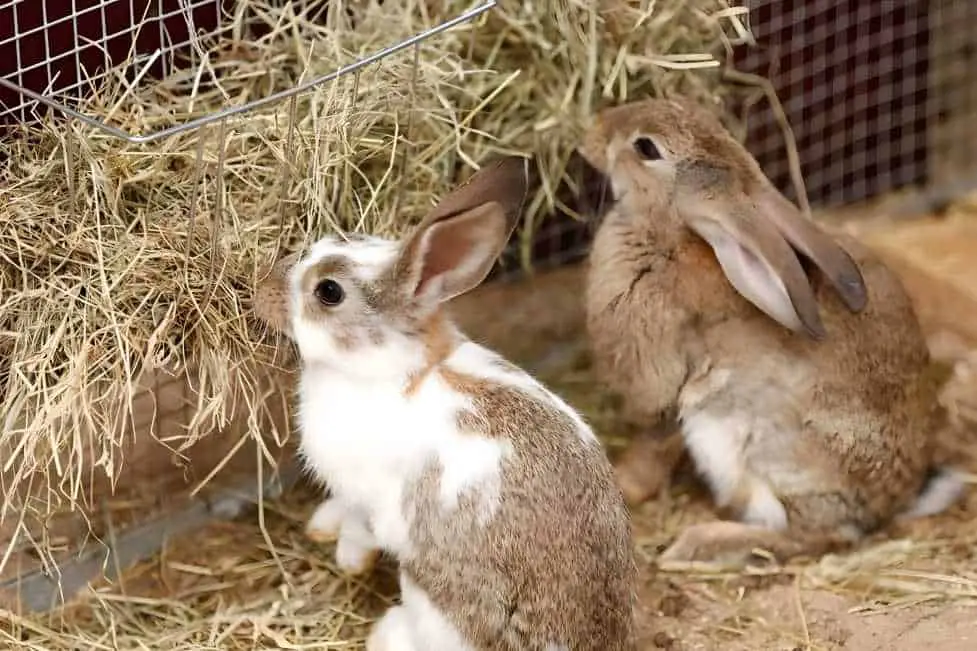
In primary school, we were taught in our science class that rabbits are herbivores. Yes, that is true. Animals that are herbivores are on a plant-based diet. That’s why rabbits only eat fruits, vegetables, and grasses, and they do not devour any kind of meat.
Most of us frequently see rabbits eating hays or grasses, but only some know how rabbits are opportunistic feeders; they also eat seeds, fruits, buds, and even tree bark. It is delightful to see your rabbit eating healthily, so that’s a big problem if your rabbit stops eating.
Why My Rabbit is Not Eating
The common reason rabbits lose their appetite is because of ileus, or gut stasis, a gastrointestinal problem. Ileus happens when the normal peristalsis of the rabbit decreases or stops. When this occurs, the intestines do not have a contraction to push food through the tract. Thus, it is harmful to the rabbit and may lead to death when untreated.
These are some pre-existing health problems that commonly cause ileus, and your rabbit may have one of these:
- Dental issues, such as overgrown teeth
- Diet changes
- Presence of abscess
- Parasites, external and intestinal
- Poisons
- Environmental stressors and sudden changes
- Joint disease
- Stomach ulcers
- Infectious disease
Some obvious signs of your rabbit having an ileus problem are:
- Overgrown teeth, commonly the incisors.
- Tumors or abscesses are present. You can check by stroking your rabbit, and a lump is felt.
- Unusual eye or nasal drainage. Check the rabbit’s nose if there is condensation.
It is easy to tell your rabbit is not eating if its food is left untouched. However, not all owners can see this obvious sign. In some cases, rabbits have subtler appetite changes.
How to Know My Rabbit is Not Eating?
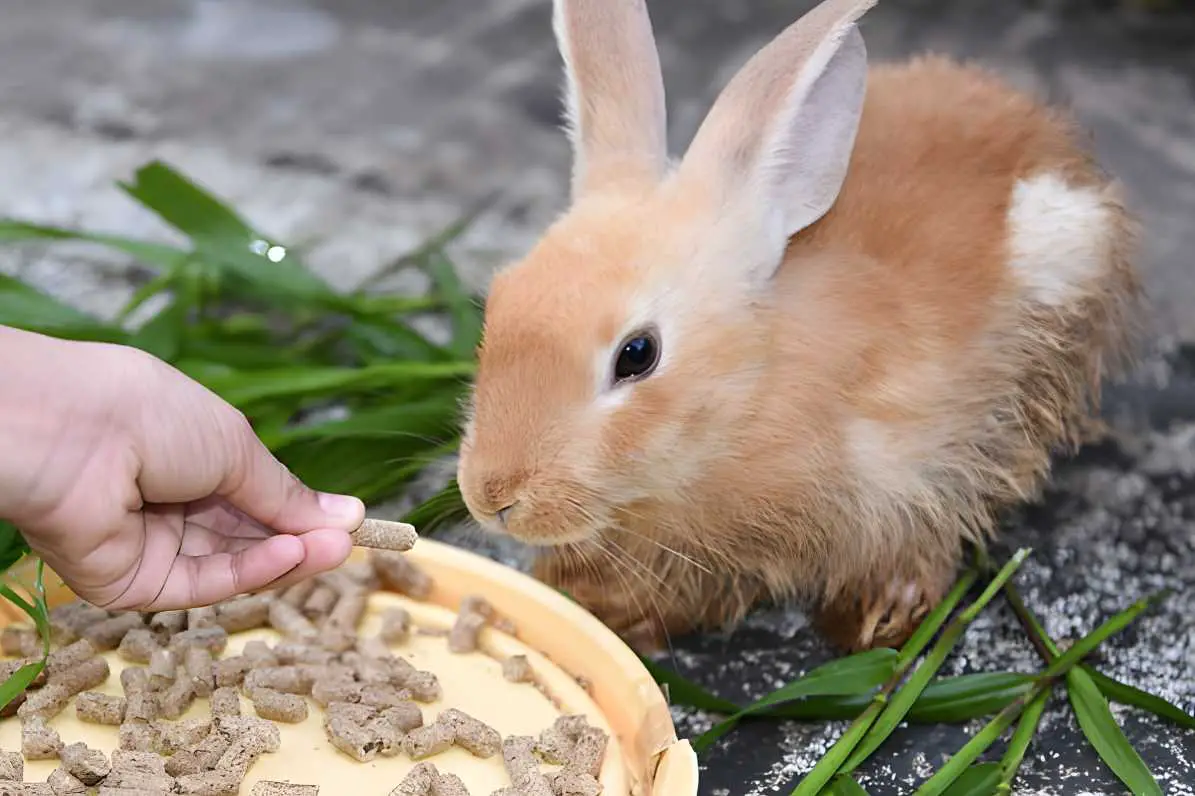
Apart from the obvious signs of their food bowl being left full and untouched, there are subtle signs and changes that your rabbit is not eating properly. These subtle signs may include:
- Diarrhea or changes in feces texture
- Small or fewer feces
- Weight loss
- Lethargic
- Drooling or teeth grinding
- Decrease water consumption
These obvious and subtle changes in your rabbit’s eating habits certainly warrant a vet consultation and treatment. But, if there is an absence of obvious signs, any environmental changes or stressors may have caused distress to your rabbit, leading to loss of their appetite.
If you think this is the cause, you can correct their eating behavior by reversing what you have changed and trying home remedies. Moreover, you can have a phone consultation with the vet while trying some home remedies.
Home Remedies for Rabbits
After noticing that your rabbit is not eating, you can try these few home remedies.
- Force-feed rabbit with mixed-vegetable baby food through a syringe; this stimulates the gastrointestinal tract. Rabbits that have not eaten make their intestines filled with gas, making it painful for them.
- Encourage exercise and massage the rabbit’s belly to stimulate gut motility.
- Increase rabbit’s water consumption for extra hydration. You may also prepare an electrolyte solution until your rabbit defecates normally.
- If your rabbit is only eating a few, do not offer pellets. Give them vegetables and higher water content.
But, if your rabbit refuses these home remedies and still does not eat, this is already a life-threatening situation that requires immediate attention from the vet. You should not delay your trip to the vet.
What to Expect at the Veterinary?
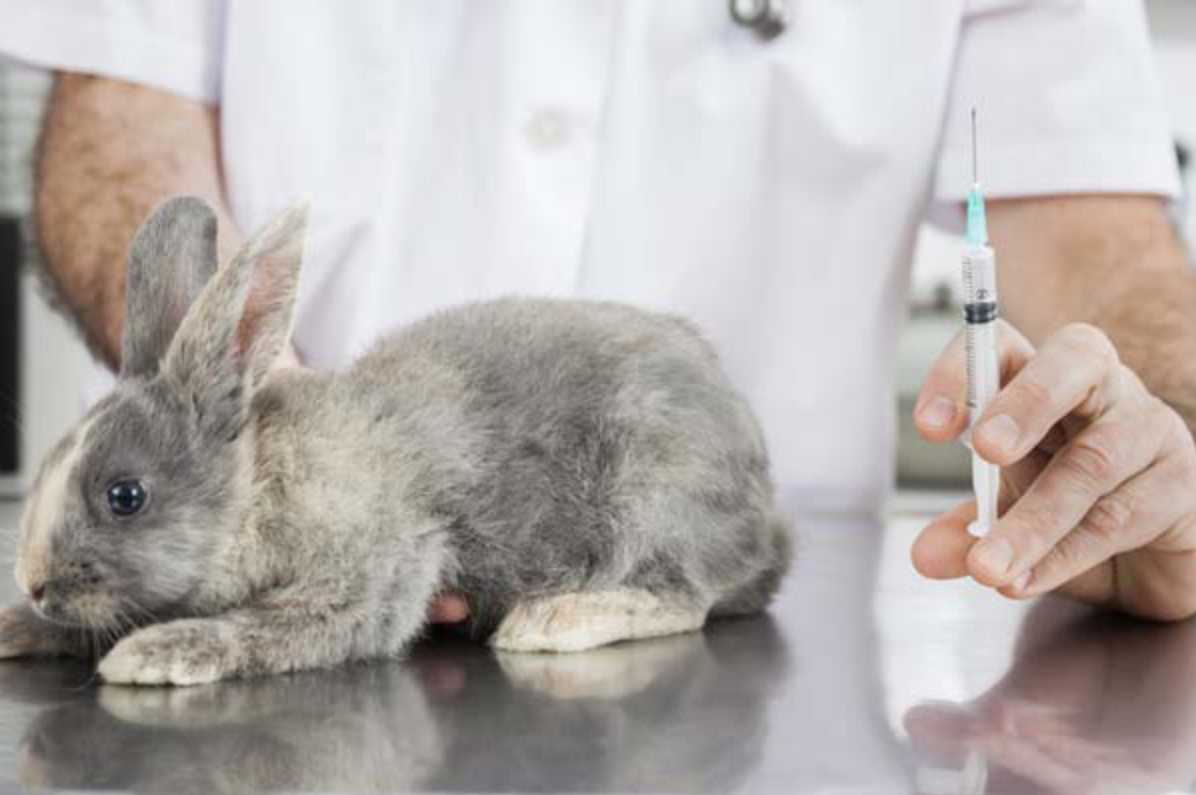
Certainly, the signs and symptoms you might have mentioned to the vet may still indicate a vague health concern. That is why your rabbit can determine the cause after conducting the diagnostic processes.
The usual diagnostic procedures done for rabbits are:
- Blood test
- Dental examination
- Urine and fecal test
- Radiology
However, some of these diagnostic procedures are limited or not practical due to financial status or the rabbit’s deteriorating health. If this is the case, vets proceed to treat your rabbit aggressively with medication and IV fluids.
Standard Treatment Done by Vets
Vets do not see ileus and eating habit concerns as an alienated case. It commonly happens to rabbits, resulting in vets already having a standard treatment for this health problem.
When you bring in your rabbit, vets immediately treat your rabbit with IV fluids or another treatment to rehydrate it. If there are other health issues such as gastric motility, gas production, and pain, the vet will prescribe other medications.
Meanwhile, force-feeding is still reinforced to provide your rabbit nutrition while they are not eating properly. Prevention is better than cure. Although this is a cliche statement, these diseases and gastrointestinal problems that cause your rabbit to lose their appetite are completely preventable if they are taken good care of.
How to Prevent Health Issues and Loss of Appetite
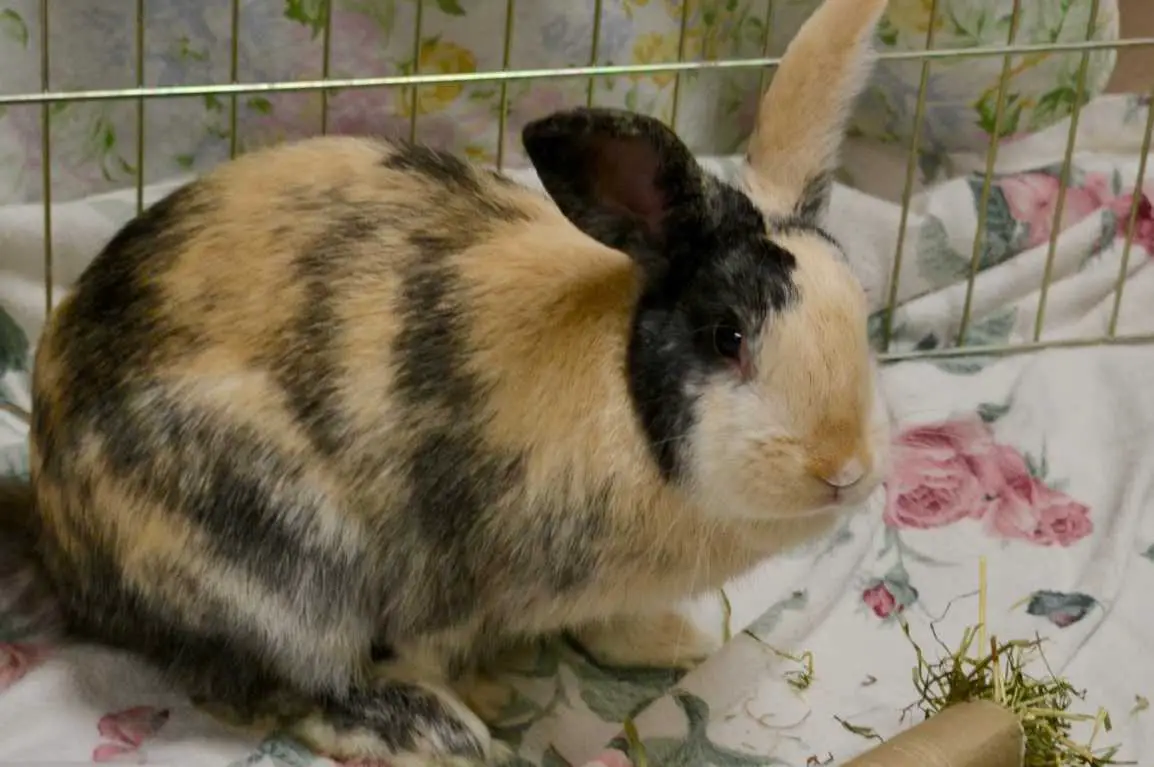
Health issues and loss of appetite are preventable if your rabbit is receiving adequate care and attention. Overgrown teeth, a common dental problem that may cause several diseases, can be prevented by giving your rabbit regular dental care. Moreover, regularly cleaning your rabbit’s cage prevents parasitic infestations and infections.
Since we are focusing on rabbits’ eating habits, there are simple ways to promote a healthy appetite. If you do not have a meal planner for your rabbits, here are some feeding tips that you need to know.
Healthy Food Diet for Rabbits
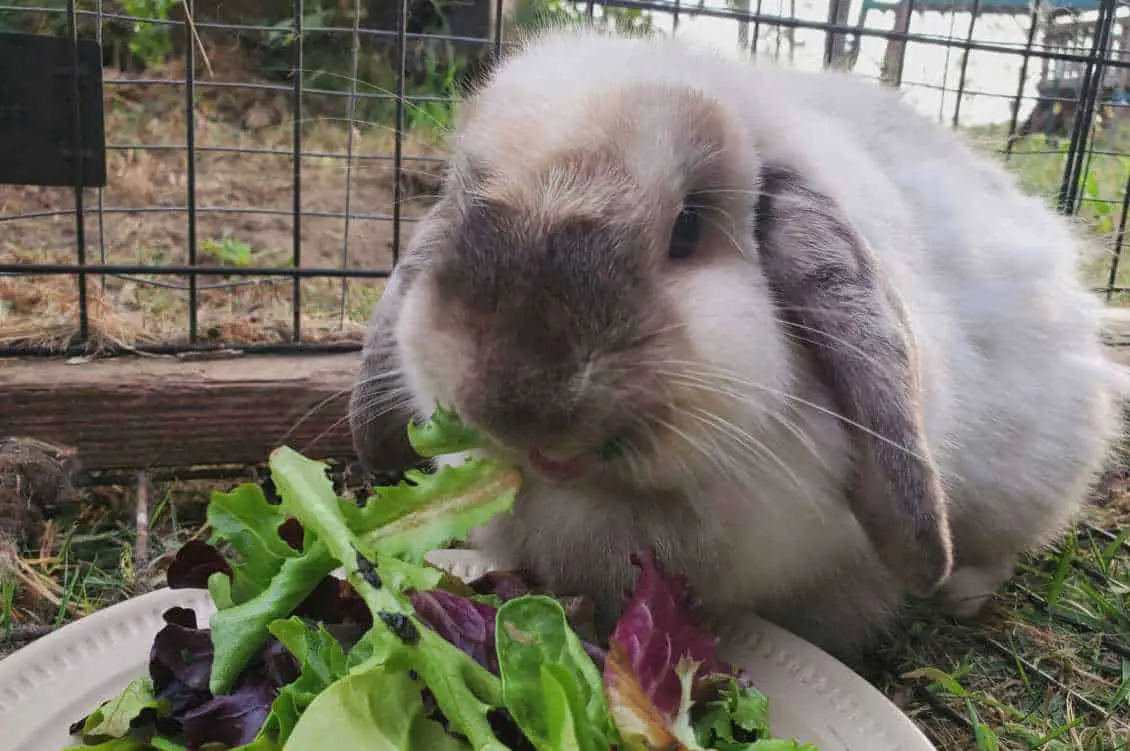
Rabbits eat regularly to help their peristalsis; that’s why they must consume the best food diet. Unlike the wild rabbits, these domestic or pet rabbits have been accustomed to enjoying a human-manufactured diet. Thus, owners of pet rabbits have to be careful in giving food to ensure that they are providing what they need and all are nutritious.
Rabbit Water Requirements
Rabbits need to rehydrate, especially during the dry season. Always keep fresh and clean drinking water. Regularly check their water consumption and refill it with fresh water.
Some rabbits prefer to drink water in a bowl, and others from a sipper bottle. If you offer water in a sipper bottle, inspect the bottle to ensure there are no clogs. Meanwhile, if your rabbit prefers to drink water in a bowl, you must ensure that the bowl does not spill.
Rabbit Diet
You might wonder what the best rabbit diet is; one thing’s for sure, it has to be nutritious and safe for your rabbit. Always include a good quality of hay or grass; this is a primary item in a rabbit’s diet. Some feed lawnmower clippings to their rabbit, which is a big no; it causes stomach upset and other causes of digestive system illness.
Even when there are hays or grass, adding a commercial rabbit pellet makes their meal plan more nutritious. Moreover, only give safe root vegetables and fruits to the rabbit. Do not feed them with other things that may cause death.
Do not abruptly change the diet. It is necessary to have the feeding quantities adjusted to ensure the rabbit is not underweight or overweight.
Rabbit Treats
Like other pets, you can give your rabbit treats, but it is important to consult the veterinarian first. Vets recommend the best types of treats for your rabbit. Several rabbit treats have high-calorie content, which leads to your rabbits becoming overweight.
Although you can feed rabbits some fruits, you can only give them limitedly. Fruits have a high sugar content that may cause stomach upset when given in excess. Serve not more than two tablespoons every two days.
It is often said that what humans eat, rabbits can, but cookies, seeds, grains, bread, and nuts are not healthy treats for rabbits. Always plan the meal for your rabbits and seek help from vets when needed.
Bonus Fact About Rabbit Appetite
- We have noted earlier that overgrown teeth are one of the causes of your rabbit not eating. You have to give your rabbit a chew toy to maintain the health of its continuously growing teeth.
- You should not give rabbits vitamins. They do not need extra vitamins, and rabbits only need a varied and high-fiber diet.
- It is a misconception that rabbits love carrots. Whether they want it or not, carrots have to be fed sparingly. Carrots are high in carbohydrates which causes gastrointestinal upset in your body.
- Lastly, this fact may be shocking, but rabbits are coprophagous. Rabbit coprophagy means they eat their feces. This behavior often happens early in the morning. Although most rabbit owners have not observed this behavior, this habit is normal and necessary for your rabbit to maintain health.
Final Thoughts
If your rabbit is not eating properly, this is a serious concern, which may be life-threatening. Several health issues may lead to loss of appetite, but what’s important is you know the signs and symptoms and how to handle them properly.